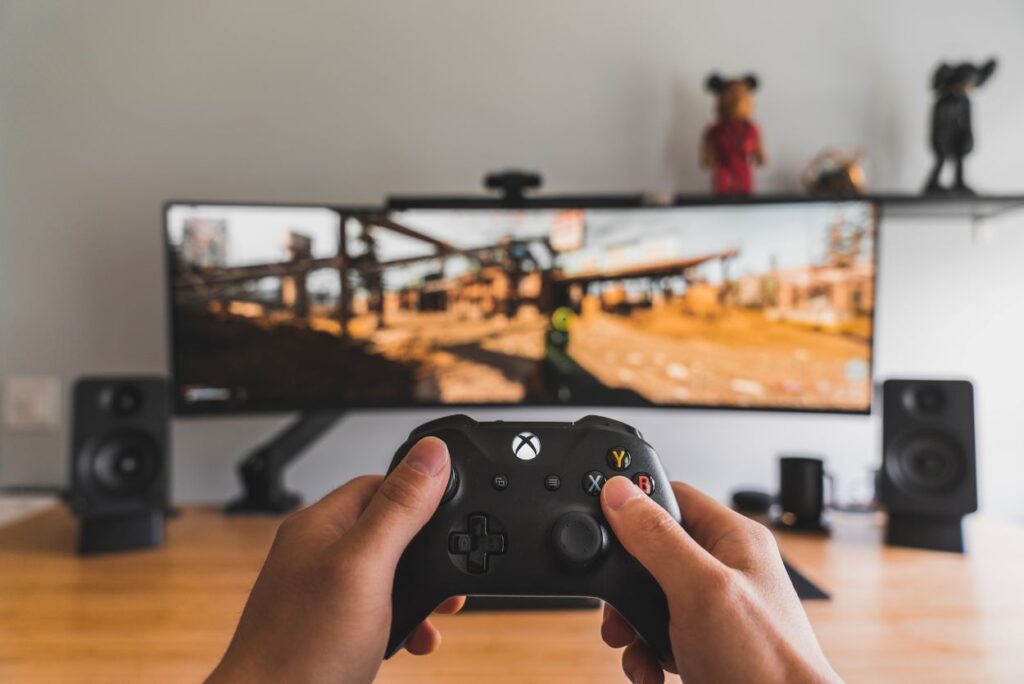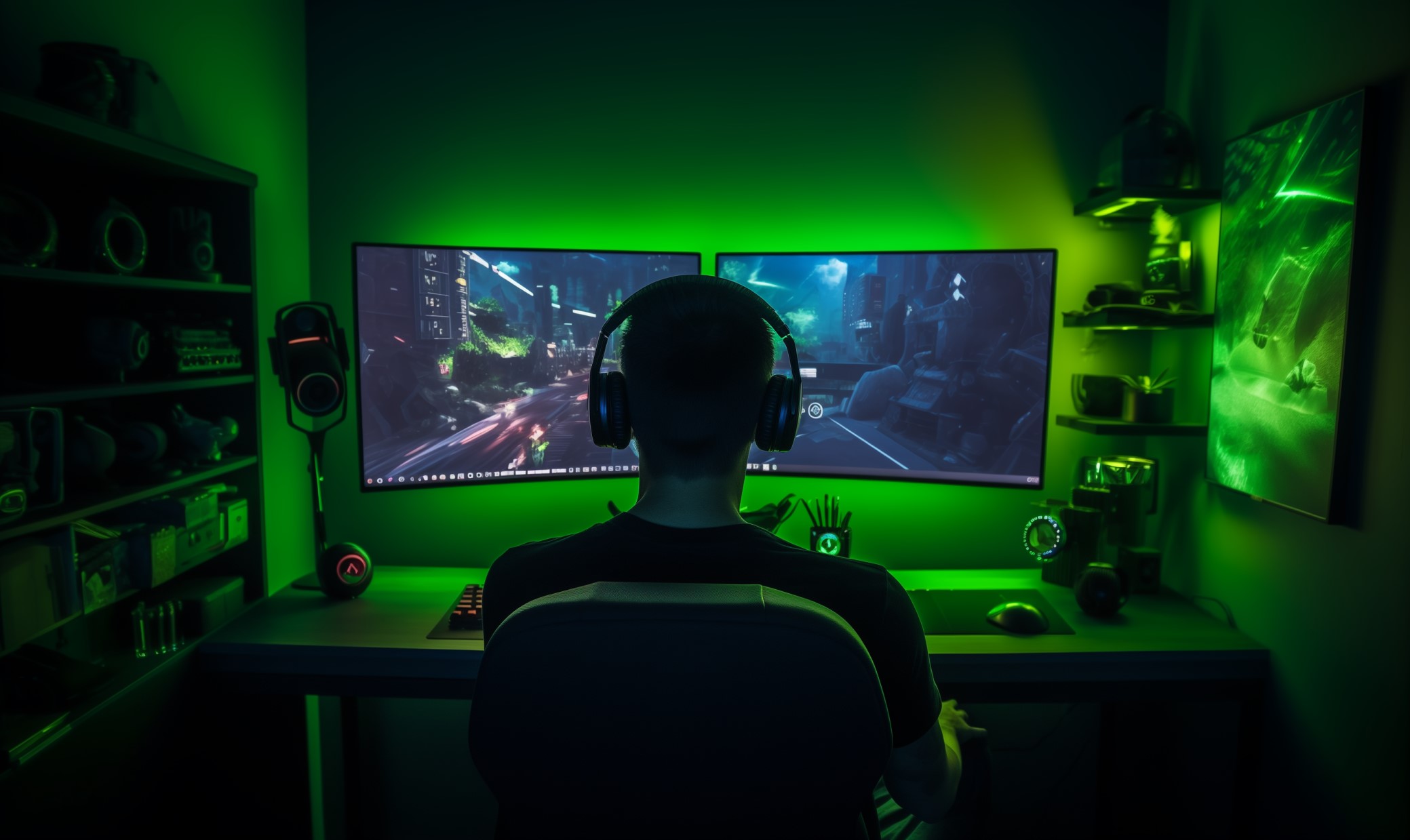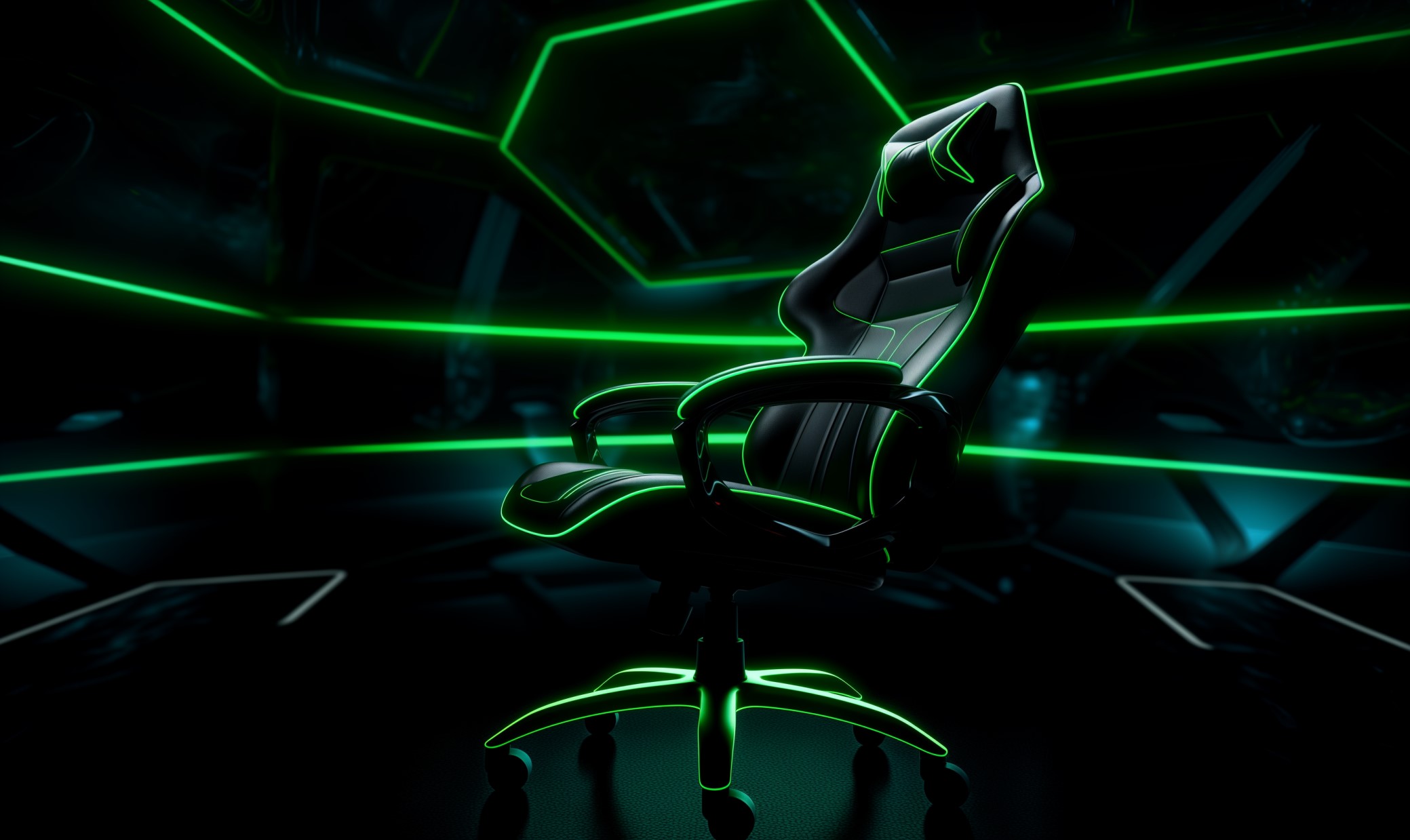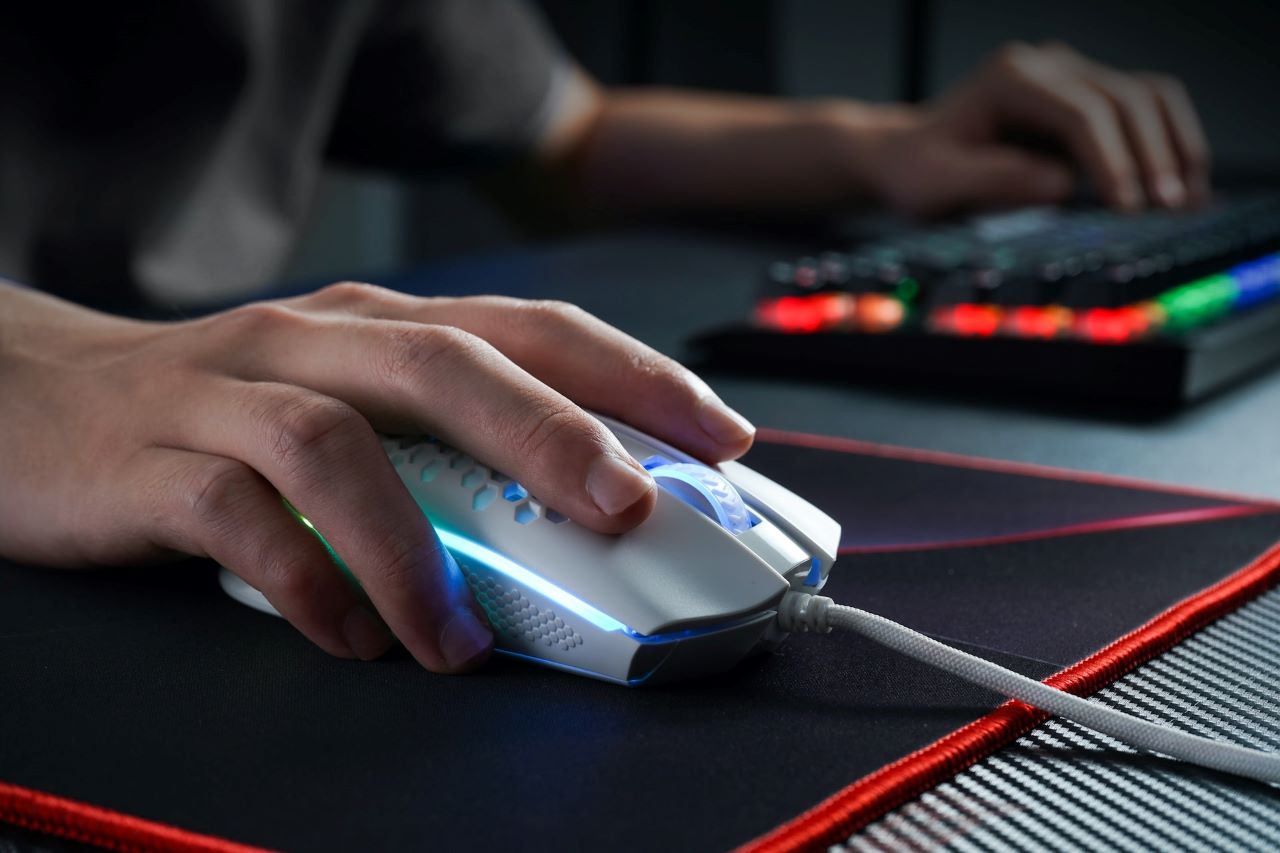What do you need to build a PC? More specifically, what do you need to build a gaming PC? These are the questions that define and influence how you use your computer, so a gaming PC parts list goes a long way.
There’s an appealing simplicity in playing games on consoles or laptops. There’s little to configure and no components to choose or swap — just predictable, no-fuss performance.
However, a lot of people swear by PC building as the ultimate gaming rite of passage. If you want to excuse yourself from console wars and short upgrade cycles, and discover the pleasures of building your own computer, this gaming PC parts list is just what you need.
We’re not here to play favorites branding-wise. But we can tell you where to invest your money and where you don’t need to bother. Ready to begin?
Why Build Your Own Gaming PC?
There are plenty of reasons for learning the parts to building a gaming PC. You get to know the computer inside and out, so if there’s ever an issue, you’ll know exactly what to do and exactly how to take care while fixing it.
Additionally, you and only you know exactly what you want from a gaming PC. If you buy one or have someone else make you one, you may not get the exact specifications you’re looking for. The price may be higher, too.
Thus, before you get started, you should take a step back and prepare a budget. Creating your own PC means that you get to spend as much as you’d like, adding yet another benefit on top of all the skills you’ll learn.
You should account for:
- A central processing unit (CPU)
- A CPU cooler
- A graphics processing unit (GPU)
- Memory, or RAM
- A motherboard
- An operating system
- A power supply (PSU)
- Storage
- A computer case
- A few additional and optional components
All in all, these parts of a PC add up, but they’re all essential parts to building a gaming PC. While you can spend under $1,000 overall, it might be a little tricky. Aiming for $1,500 is a general estimate that you can work with as you go.
Whether you need instructions for building a gaming PC for beginners or you already have some experience, here are all the parts you’ll need.
CPU
The central processing unit, or CPU, would be the most important element on this gaming PC parts list if each component wasn’t essential in its own right, performance-wise.
A CPU is a computer chip that houses billions of transistors. The more transistors there are, the more tasks the computer can perform at once. When you’re in the market for a CPU, you’ll see references to 10-, 12- and even 16-core CPUs. Additional cores further enhance the computer’s multitasking capabilities.
To get a sense of where the PC gaming community is situated currently, look at the “minimum” and “recommended” computer specs provided by videogame developers. They’ll tell you how many CPU cores cutting-edge gaming requires.
CPU Cooler
It’s important to note that not every CPU on the market comes with its own CPU cooler, also called a CPU fan or heatsink. If that’s the case for the CPU you want, it’s a good idea to check for recommended products in this category.
For compatibility, remember that the manufacturer and retailer will note which motherboard and CPU socket combinations the cooler is compatible with.
Graphics (Video) Card
A graphics card, or GPU, is vital and one of the most important parts to building a gaming PC for providing the best quality possible. It influences how the computer renders images.
PC enthusiasts await the arrival of new graphics cards just as console gamers await new consoles. This is arguably the workhorse of the rig if you’re building a machine dedicated to PC gaming. With the right care, a graphics card will stay operable for five years and even up to eight in some cases.
It won’t be playing new video games on High or Ultra after all that time, but it’ll still keep you going playing relevant games for years until technology provides the next generation of faster, more powerful cards. For the present, the more powerful the GPU, the better the graphics and experience will be.
Memory (RAM)
Memory modules, or RAM (“Random Access Memory”) stores the information that your computer is actively using. Rendering complex programs or engaging in multiple tasks at once requires larger quantities of RAM.
Today, most PC gaming enthusiasts will tell you that 4GB of RAM is the bare minimum since games are becoming much larger and more complex. 16GB is quickly becoming the new minimum if you want to get a few years of video gaming out of your machine. If you can splurge a little, go for 32GB or more. However, that level of RAM can cost significantly more, so 16GB may be the best compromise.
Consider the subtle factors regarding memory, too. Will you be transferring games from other platforms, like Steam and gaming consoles? That step will require more RAM.
Motherboard
The motherboard is essential, but it’s not necessary that you spend a ton of money on it, relative to some of the other components (like the CPU and graphics card).
Here are the motherboard factors to remember as you’re assembling your components:
- Are you using a Mini-ITX, MicroATX or ATX computer case?
- Do you want an Intel or AMD CPU?
- How many PCIe ports do you need for graphics cards and other accessories?
- What kind of connectivity and ports do you require on the rear of the PC tower?
In addition to these other compatibility considerations, also look for motherboards with Wi-Fi and Bluetooth built right in.
Operating System
Just like your Xbox Live or PlayStation Plus subscription, you need to “buy into” the ecosystem, even as a PC gamer. Unless you’re a Linux user, building a DIY gaming PC means spending money on a legitimate copy of Windows. Windows 8 and 10 users can also swap an SSD or HDD with a Windows installation into a new build without trouble in most cases.
Power Supply (PSU)
Choosing a power supply is nobody’s favorite part of choosing PC components, but it’s no less important. In addition to supplying adequate electricity to every part of the build, the right choice in power supply can also make cable management easier through modular designs and other features.
To calculate your PSU requirements, multiply the total amps of your chosen components by the volts of all the components. This gives you the wattage your PSU needs to supply. Or, you can use an online PSU calculator to do it. Either way, don’t underestimate this component —and include some wiggle room for future upgrades as you choose your wattage.
Storage
Hard drive disks (HDDs) and solid-state drives (SSDs) provide the long-term storage capacity you need for operating systems, photos, documents, videos, game installs, music and all the other media you accumulate in your digital travels.
The gold standard today in terms of read/write speed and snappy performance is the solid-state drive. In fact, if you upgrade just one component on your old PC today, swap your old hard drive for an SSD. It’ll help with boot times, loading times in videogames and generally improve your life.
SDDs may prove to be more useful for building a gaming PC for beginners or any skill level. Its speed and reliability usually make it a safe option.
Computer Chassis (Case)
Spend time thinking about what kind of case you want to live with. Most gamers prefer a full-tower or mid-tower design, both of which are large enough for full-size ATX motherboards. More experienced builders enjoy the challenge of mini-ITX designs, though these require specially sized motherboards.
Pay attention to the primary build materials in your computer chassis. Steel, plastic and aluminum all influence the fit-and-finish, durability and longevity in major ways. Choose a style you won’t grow tired of, and look for features like easy, tool-less access to the interior and suitable fans and airflow.
Cases can sometimes just be for aesthetic purposes, so if you’ll set the computer behind the monitors, you won’t really need a flashy case. Go with the ones that offer the best protection from dust and damage.
Optional Components
There are a few optional components to help round out your gaming PC parts list. These include:
- Computer monitor: If you have a monitor already, you’re all set! If not, know that 4K monitors have never been more accessible, price-wise.
- Optical drive: If you prefer installing games from physical media, ripping CDs or watching DVDs or Blu-ray discs, buy an optical drive.
- Mouse and keyboard: Again, if you don’t have these on hand already, pick up a pair. A wireless mouse is plenty fast enough for all but competitive gaming, and lithium-ion batteries are a snap to recharge.
- Wired headphones or headset: You’ll find all kinds of gaming-focused headphones and headsets with fancy presets, but sometimes you can’t go wrong with simple studio-style wired headphones.
Another easy-to-overlook tool is a screwdriver. A magnetic screwdriver will save a world of tedious pain as it holds on to the tiny screws that can get lost during the actual building phase.
Are Any PC Components Not Worth the Money?
For the most part, “gaming chairs” are more hype than substance. But as far as gaming PC components go, more or less everything has a place and a function.
Sound cards might be the only exception. Motherboards typically provide good-enough or even excellent on-board audio without the added hassle and expense of a discrete sound card. Many well-respected computer enthusiasts say sound cards are no longer relevant, although specific high-end applications benefit from the additional performance. Most gamers can save their cash and put it towards the other components instead.
Time to Get Building
With this gaming PC parts list, you’re ready to start building your own machine from the ground up. You’ll quickly answer the questions — What do you need to build a PC? What do you need to build a gaming PC? — as you now have all the pieces.
Check out ReHack’s guide to the actual constructing process of your new gaming PC.
In addition to providing better performance than consoles, for longer, PC gaming also provides a sense of satisfaction from building something of your own. You’ll be all set to game in no time with these tools and parts of a PC ready for the building stage.
Recent Stories
Follow Us On
Get the latest tech stories and news in seconds!
Sign up for our newsletter below to receive updates about technology trends














